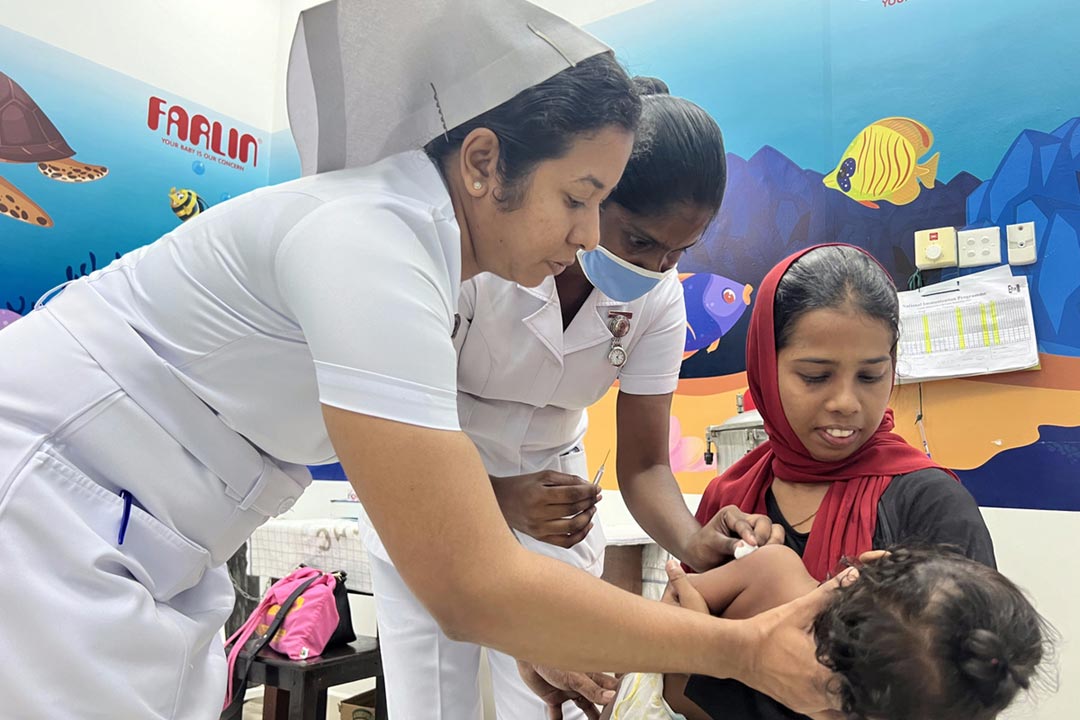
Vaccination is one of the most effective ways to prevent the spread of infectious diseases. In Sri Lanka, the government has made significant strides in ensuring that its citizens have access to essential vaccines through free vaccination services. This article explores how to access free vaccination services in Sri Lanka, the types of vaccines available, and the importance of vaccination for public health.
Why Vaccination is Important in Sri Lanka
Vaccines play a crucial role in preventing outbreaks of diseases such as polio, tuberculosis, measles, hepatitis, and others. In Sri Lanka, the government prioritizes immunization as part of its national health strategy to reduce the burden of preventable diseases. By offering free vaccinations, the government ensures that every citizen, regardless of their socio-economic background, can protect themselves and their communities.
Free Vaccination Programs in Sri Lanka
Sri Lanka offers free vaccination programs for various groups, including children, adults, and pregnant women. The following are the main vaccination initiatives available:
- National Immunization Program (NIP)
The National Immunization Program (NIP) is Sri Lanka’s core vaccination program. It provides free immunizations for children from birth to the age of 18, covering vaccines for diseases like:- Diphtheria
- Tetanus
- Polio
- Measles
- Rubella
- Hepatitis B
- Tuberculosis (BCG)
- Covid-19 Vaccination Drive
In response to the COVID-19 pandemic, Sri Lanka has also launched free COVID-19 vaccination campaigns. The government is offering free vaccines to all citizens, including booster doses, through health centers and vaccination centers nationwide. This initiative has significantly contributed to curbing the spread of the virus in Sri Lanka. - Vaccines for Pregnant Women
Pregnant women are encouraged to receive vaccines such as the Tetanus Toxoid vaccine to protect both themselves and their unborn children from certain diseases. - Seasonal Vaccination Campaigns
Sri Lanka periodically launches vaccination campaigns, such as the seasonal influenza vaccination program, to prevent the spread of flu viruses during peak seasons.
Where to Access Free Vaccination Services
In Sri Lanka, free vaccination services are available at several locations:
- Government Hospitals and Clinics
The majority of vaccinations are administered at government hospitals and local clinics across the island. These facilities have trained health staff who ensure that vaccines are given safely and effectively. - Mobile Vaccination Units
To make vaccinations more accessible, the government has deployed mobile vaccination units that travel to rural and hard-to-reach areas. These units help ensure that people living in remote areas have the opportunity to receive vaccines. - Health Centers
Local health centers are another primary point of access for vaccination. They provide vaccines for children, adults, and other groups, including those in need of travel vaccinations. - Community Outreach Programs
In collaboration with non-governmental organizations (NGOs) and international health bodies like the WHO, Sri Lanka also conducts community outreach programs, distributing information and administering vaccines in underserved communities.
How to Register for Free Vaccination in Sri Lanka
The process of registering for free vaccinations is straightforward in Sri Lanka. For children, parents or guardians can take their child’s birth certificate to a local health center to ensure proper registration and schedule vaccination appointments. For adults, the process is often walk-in, but it’s always best to check with your nearest health center for the latest updates on vaccination availability.
Importance of Timely Vaccination
Timely vaccination is essential for the following reasons:
- Prevention of Disease: Vaccines protect individuals from potentially life-threatening diseases.
- Herd Immunity: High vaccination rates help to protect vulnerable populations, such as infants, the elderly, and those with compromised immune systems.
- Global Health Security: Widespread vaccination prevents the spread of diseases beyond borders, contributing to global health security.
Conclusion
Sri Lanka’s free vaccination services have been a crucial part of the country’s efforts to improve public health. With comprehensive immunization programs available to all citizens, Sri Lanka continues to protect its population from preventable diseases. Whether you are a parent seeking vaccination for your child or an adult looking for the latest immunization updates, accessing these services is simple and beneficial for both individual and public health.








